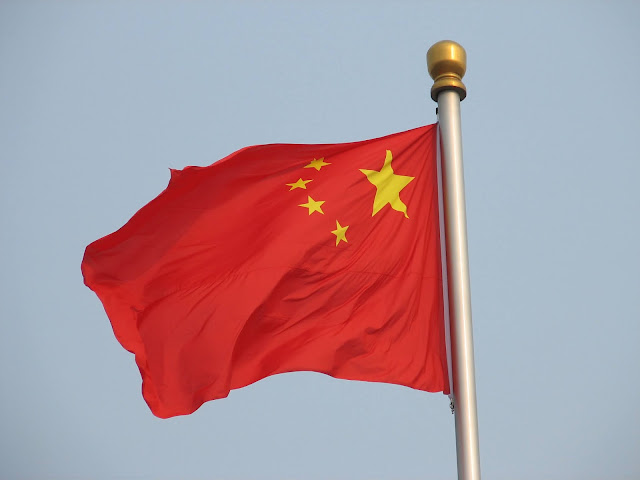The Emerging Post, Post-Cold War World Order: Bipolar, Multipolar, Anarchic or Pluralist?
By Professor Ijaz Khan via GEOPoliticalMatters.com
Prof. Ijaz Khan debates on what shape will the emerging order be, which no more sees its interests tied with spread of democracy, has put the existing post cold war order on its deathbed. Though this process had started earlier, the Covid-19 Pandemic has fast forwarded it.
The increasing Chinese role and influence is accompanied by a model of development, known as the ‘Chinese Model’ also termed meritocracy or Confucianism (Daniel A. Bell: The China Model: Political Meritocracy and the Limits of Democracy. Princeton, 2015) as an alternate to the liberal model. The Chinese model replaces the socialist ‘Soviet Model’ combining the liberal economic system with the political administrative system of the Soviet Model. Chinese Model permits more political parties, thus claiming to be a multiparty state, however, all parties has to work under the control of the ruling Communist Party, not as a challenger or alternate to it. The Chinese Model also permits relatively stronger and autonomous local governance elected through popular vote, however to graduate from local to mid-level and above, the candidates have to go through a selection process of exams and interviews, not elections. To many in developing countries this may sound familiar, finding it more attractive alternate to western liberal democracy or the Soviet Socialist models.
The ruling elites of the global south, has been wary of both the liberal democracy and the socialist economy. The Chinese model seems to suit them. It gives them a conceptual / ideological basis to have liberal economy without having to be worried about liberal politics. We have seen some raw variations of that in Pakistan as well as other Asian, African and South American states. Gen. Musharaf of Pakistan came closest to it, when he introduced a system of strong local government, educational qualifications for membership of legislatures, and the President in military uniform, with Corps Commanders in place of Communist Party Secretary General and its Politburo, with overall control.
It is rather a return to the cold war era. During the Cold War too, the US allied with and supported despotic authoritarian regimes as long as they opposed Soviet Union. A cursory look at the western allies during the Cold War would find an overwhelming majority of authoritarian regimes. In the post cold war era US pursued a policy based on tying its security and other interests with promotion of liberal democracy along with liberal economy. The merits or demerits and its successes or failures can be debated, but going into that is out of the scope of this essay.
There is a qualitative difference between the US–Soviet rivalry and the US–China rivalry. Soviet Union challenged the liberal economic system, not just the liberal political system. The main attraction for the ruling classes of the non-European states was the protection, the west led by US provided was the capitalist economy. The developed liberal side of the cold war had never really cared for the liberal political part of the liberalism. In the post-cold war era, the democratic voices within the non-European states started receiving more support. A vibrating civil society advocating for Civilian supremacy and Human Rights emerged with strong ties across the North South divide and support of the western governments.
In the current competition between US and China, neither liberal economy nor liberal governance are the issues, as one does not have a liberal governance itself and for the one that is a liberal democracy itself, in foreign relations it is not of much significance. Both sides agree on liberal economy as a better system.
This contest is for leadership and control of international economy, not alternate systems. In the US Two factors will determine, which side a state stands, economic interests, aid and local geopolitics. China is already being recognized as supporting and helping the Covid-19 hit countries and is.
The World is witnessing the end of the unipolar world Order. There are predictions of it resulting in a new bipolar order or a global anarchy. There is little if any consideration of a third possibility, a multi- polar World, with Europe as a separate pole than US at global level, with a number of regional powers or alliances, closer to one or the other of the main global powers, but not in any of these camps/poles.
That is a possibility that needs further research focus and may prove to be a more probable in addition to being democratic and peaceful order than the apparent most popular conceptions of a new bi-polar order. A pluralist and more democratic order, leading towards complex interdependence, stronger international institutions (perhaps new ones or with fundamental alteration in the existing), international law and peace.
The global economic recession and the Covid19 Pandemic has weakened the US as well as its emerging global competitor, China to a level that the World cannot return to a bipolar system, as the unipolar post cold war order crumbles. This can mean anarchy but it can also mean increased interdependence leading to stronger international institutions and a more democratic world order.
About Prof. Ijaz Khan
Prof. Ijaz Khan is a former Chairman of Department of International Relations, University of Peshawar, Pakistan and freelance consultant. He is the author of a book titled “Pakistan’s Strategic Culture and Foreign Policy Making: A Study of Pakistan’s Post 9/11 Afghan Policy Change”.
He specializes in Foreign Policy Decision Making, Public International Law, Human Rights, Conflict Resolution, Pakistan, Afghanistan, Pashtuns, Former Federally Administered Tribal Areas (FATA)
Professor Khan can be contacted via his Blog at:
https://ijazk.blogspot.com








